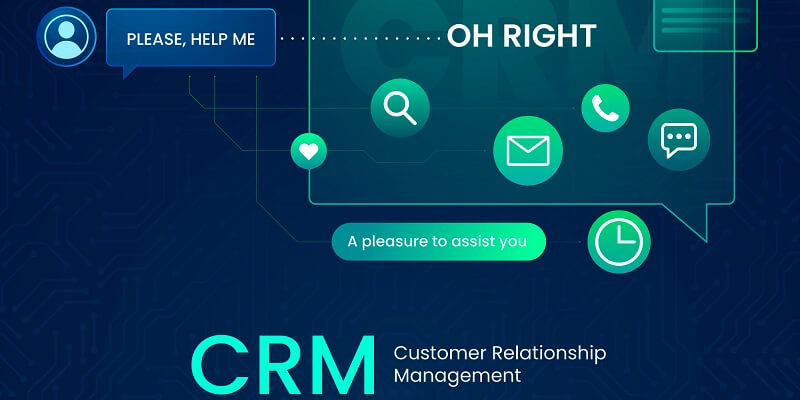In today’s digital age, Customer Relationship Management (CRM) has become a crucial aspect of business success. With its ability to empower organizations to better understand, engage, and serve their customers, CRM has gained significant significance in creating an endless amount of output. From nurturing leads to closing deals, maintaining customer loyalty to driving revenue growth, CRM plays a pivotal role throughout the customer journey.
The significance of versatility in the life of a CRM professional
Versatility is a real cornerstone in the life of a CRM professional. In this dynamic field, adaptability becomes key to success. CRM professionals need to be adept at handling multiple responsibilities, including managing customer data, developing marketing campaigns, analyzing customer insights, and driving cross-functional collaborations. The ability to wear multiple hats ensures that CRM professionals can effectively adapt to the ever-evolving needs and challenges of the business landscape.
The Art of Balancing Different Elements to Deliver Excellent Digital Experiences
CRM professionals, at their core, are tasked with delivering excellent digital experiences to customers. This requires finding the perfect harmony between various elements such as personalized communication, impactful marketing, seamless user experiences, and timely resolution of customer queries. The real art lies in orchestrating these diverse components to create meaningful interactions that leave a lasting impression on customers.
Collaborating with other teams in the creation and delivery process
When creating and delivering something for a customer, there will always be dependencies and inputs from other teams. Whether it’s working closely with sales teams to align on customer needs or collaborating with marketing teams to synchronize messaging, CRM professionals thrive on cross-functional collaboration. By fostering effective communication and teamwork, CRM professionals ensure a cohesive customer experience that transcends departmental boundaries.
The value of interactions with other teams in personal growth
As CRM professionals engage with different teams and stakeholders, they gain exposure to diverse perspectives and skills. These interactions become invaluable opportunities for personal growth. By actively participating in cross-functional discussions, CRM professionals broaden their knowledge, enhance their problem-solving abilities, and build strong professional relationships. These experiences allow them to raise their own game and become well-rounded experts in their field.
Using CRM tools to become a visionary and create digital portraits
CRM tools provide a vast array of functionalities that empower CRM professionals to go beyond the basics. By leveraging these tools, such as customer segmentation, workflow automation, and predictive analytics, CRM professionals can become true visionaries in their roles. They can design and deliver mini digital “portraits” of customers, tailoring experiences that cater to specific needs and preferences. This level of personalization not only enhances customer satisfaction but also drives brand loyalty and advocacy.
The Ever-Changing Norms and Trends in CRM
CRM norms and trends are always in a state of flux. From the rise of omnichannel customer experiences to the increasing adoption of artificial intelligence and machine learning in CRM, staying updated is crucial for CRM professionals. By embracing change and continuously learning, CRM professionals can remain at the forefront of industry developments, ensuring that their strategies deliver maximum impact and keep pace with shifting customer expectations.
Transferability of CRM skills to various roles
One of the unique advantages of CRM skills is their high transferability. The expertise gained in CRM can be applied across a range of roles, from sales and marketing to customer service and even product development. The ability to understand customer needs, analyze data, and deliver personalized experiences is highly sought after in many professional domains. Consequently, CRM professionals enjoy diverse career opportunities and the potential for growth in multiple directions.
The central role of data, reporting, and analytics in CRM
Data, reporting, and analytics form the heart of CRM. They enable CRM professionals to gain valuable insights into customer behavior, preferences, and trends. By harnessing this wealth of information, CRM professionals can make informed decisions to optimize strategies, improve customer interactions, and drive business outcomes. The ability to effectively collect, analyze, and interpret data is critical for CRM professionals to succeed in their roles.
The importance of a data-driven mindset in pushing boundaries in CRM
To truly excel in CRM, a data-driven mindset is paramount. By embracing data as a driving force, CRM professionals can uncover new possibilities and push the boundaries of what came before. From leveraging predictive analytics to identify and anticipate customer needs to using data-driven reporting to measure performance and iterate strategies, having a data-driven mindset enables CRM professionals to flourish and consistently surpass customer expectations.
In conclusion, CRM provides endless opportunities for organizations to create output and deliver exceptional digital experiences to their customers. As a CRM professional, versatility is key, allowing you to adapt to the evolving landscape and take on various roles and responsibilities. By collaborating with other teams and embracing continuous growth, you can become a visionary in your field, leveraging CRM tools to design personalized digital portraits of your customers. As CRM norms and trends shift, your transferable skills will remain valuable, enabled by data, reporting, and analytics. Embrace the data-driven mindset to flourish and push the boundaries, rewriting the future of CRM. Unleash your CRM potential and unlock the power of endless possibilities.

